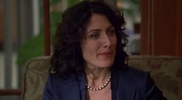Bruising, espcially deep tissue bruises, can be painful, sore and show discoloration. Damaged tissue, musclesand broken capillaires and arteries can swell showing signs of redness and tenderness.
For superficial bruising from injury or surgical procedures, bruises can last for significant periods. Using vitamin k cream for bruises helps repair broken vessels as well as fade discoloration.
Life seems to be riddled with all sorts of little problems that we could all do with out. No matter how careful and graceful we may try to be, inevitably there are going to be times we trip, stumble, fall, run into something, or drop a heavy object on ourselves leaving a sore, ugly bruise.
Sometimes bruises just seem to appear, and we don’t even know what we did to get them! Getting a bruise on occasion is basically unavoidable but there are things you can do to help lessen the severity and duration.
What causes Bruising?
A bruise means that you had some sort of impact that caused damage to capillaries allowing blood to leak into the surrounding tissue. Usually within hours, you will see the damaged area turn to a shade of blue or purple. Left on its own, this color will slowly fade away as the capillaries heal and the excess blood is reabsorbed into your body.
First Aid for Bruises
First thing you want to do after getting a good impact that will form a bruise, is to treat the area with an ice pack. The ice literally stops the blood cold in its tracks and so less blood flows out. Depending on the severity of the injury, you may need to continue ice treatments for several days.
After icing the bruised area, wrap an elastic bandage around it, not too tightly. The mild pressure helps reduce leaking from the vessels and helps minimize the bruising.
Vitamin K to the Rescue
However, creams that contain Vitamin K are most effective for diminishing bruising. Vitamin K creams penetrate deep into your skin providing the necessary help right where it is needed most - at the bruised site.



